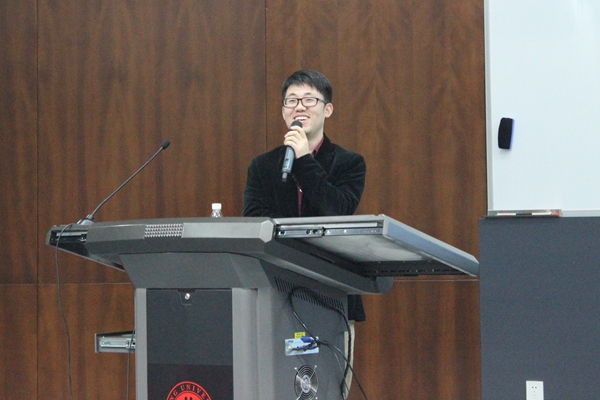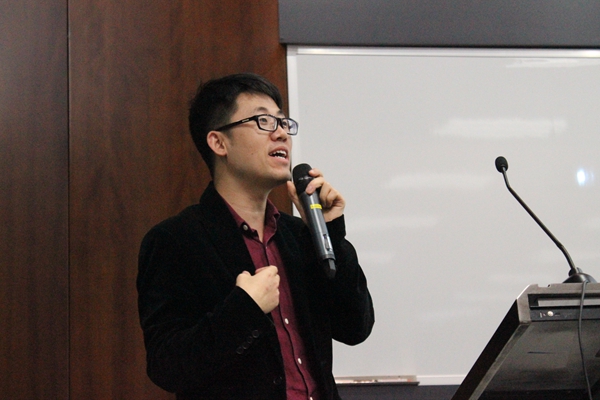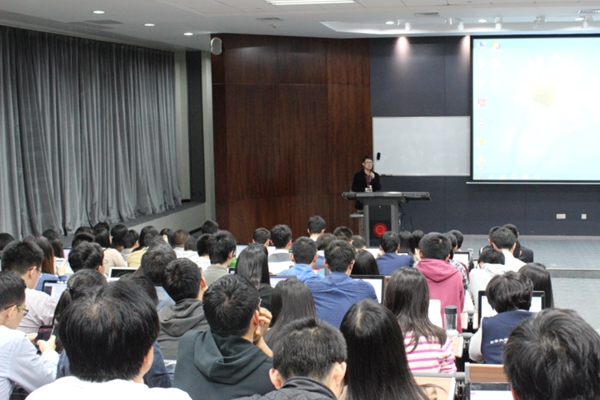[Huitong Press] On March 5, Xu Jianwen, CEO of Renrenmoney and Peking University 2007 class alumnus, delivered a speech about internet and internet finance at the 'Finance in Practice’ lecture series hosted by Sun Lei, assistant professor of Peking University HSBC Business School.
Xu first talked about his own learning experience in starting his own business. In 2011, he founded Renrenmoney, a company aimed at serving customers through a P2P (peer-to-peer) platform. Xu mentioned that his working experience in CITIC Securities helped him grasp knowledge about industries, developed his sensitivity to market information, and thus laid a solid foundation for starting his own business. Started from scratch, his company has grown steadily. In view of his experience, Xu suggested that it is better for graduates to accumulate social experience before starting one’s own business.

Next, Xu interacted with the audience and talked about the internet. From traditional media to BAT (Baidu, Alibaba, Tencent) in the PC era and from internet shopping to mobile internet, Xu said that he believes that the internet has brought about tremendous changes to people’s lives. It has altered the conventional economy in two aspects: information and channel, which used to be the advantages of traditional enterprises. Affected by the internet, brand new business models came into being, typified in Taobao, a company that realizes information exchange and sharing through C2C (customer-to-customer), and 360, an internet company firmly implements free policy. Meanwhile, low cost, diversified channels for information acquisition and fast, efficient internet promotion enable brands to be recognized much more quickly than before, so competitiveness in the product itself becomes the key for success in the internet era. Based on this logic, Xu considered the saying, “Good wine sells well even if it is located in a deep alley,” applicable in the internet era. Moreover, the internet facilitates entrepreneurship through marketing channels, means of communication, payment, and logistics. Entrepreneurs are left to discover and solve problems, understand and meet demand, and utilizing various resources. As for finding entrepreneurial inspiration, Xu said he believes that everyone’s specialty and hobbies are valuable and can be used to successfully penetrate into a segment market if supplemented with critical thinking and an ingenious business model.

With regards to finance, Xu first summarized its function, namely deposit, loan, and exchange that nowadays take the form of wealth management, credit, and third party-payment. The groundbreaking achievement of internet finance stems from using predictive analytics or other advanced methods to extract value from data. This implies huge business value in the near future because by making use of the data, internet giants can now get involved in the finance business, leaving smaller room for the development of the traditional finance industry. This phenomenon sheds some lights on what kind of jobs graduates can choose from. Xu proposed that positions that will not be shaken by internet finance in the short run are worth considering, such as investment banking, high-end client related business, and data processing and analysis.
In the Q&A session, Xu shared his view on P2P’s future development trend. He said that he believes that providing services for market segments and developing core competitiveness are two important strategies to make a P2P enterprise go further. Xu also answered the audience’s questions regarding risk control, data acquisition for a P2P platform, and two-way selection between borrowers and lenders.

Written by Jiang Yiduo Translated by Zheng Yuxin

















